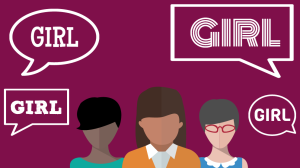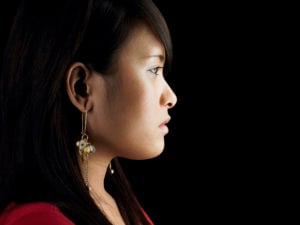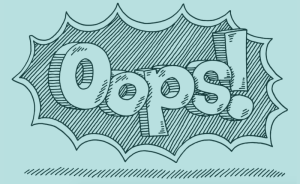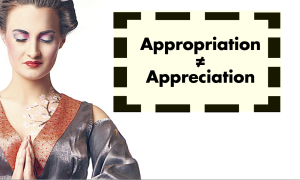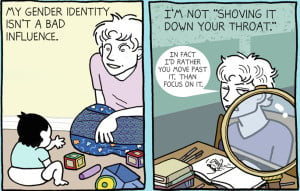Hey, you all. This is another video in a series I’m doing with Everyday Feminism which is a website dedicated to helping you break down and stand up to everyday oppression.
In this video, I want to talk about a political idea. That idea is solidarity. I hear the word used a lot. I use it myself, saying, “I stand in solidarity with the movement,” things like that. I think it’s important that we look at what it actually means and what it ought to mean and the best way to stand in solidarity especially as a person with a lot of privilege.
Let’s start by explaining what solidarity is. Solidarity, it … Did I slur my words there? Solidarity is a political idea. It’s an attitude held by those who are engaged in some collective political action.
It’s less about sharing the same aims actually, then about acting together in this political action. This means that when you’re acting in solidarity with a larger political movement, you have to be willing to stay committed through the disagreements. That might be about method or timing, things like that.
You have to be committed to the larger ideals behind the movement. That’s because it would really be a mistake and very privilege to claim solidarity if my participation in this movement depended on others doing what I think is best.
It shouldn’t be about what I think is best especially if I’m not directly affected. Just in general, it shouldn’t be about what each individual thinks is best. It should be about this collected action. That requires us to defer to other people’s judgment.
Ultimately, solidarity is largely about deferring to other’s best judgments. That means it might even require us to act against our own best judgment in order to be a part of this collective political act. When I say that we might go against our own best judgment, I’m not saying that solidarity is blind or that it’s herd mentality and that you don’t ever think for yourself or anything like that.
It’s simply about deferring your own judgments like the judgment maybe, “Oh, violence is never the answer.” Then, you have to take that, you can still believe that and yet sometimes you have to defer and realize that in this situation, maybe you’re not directly affected. Maybe it’s not you and your children whose lives are at stake. Maybe the people who are directly affected should be making the calls about whether violence is justified or not.
If you are really in solidarity with this movement, then you should be able to commit yourself to the larger movement despite these disagreements about method so that you can be of genuine help to the oppressed group in their cause. The first step I think in acting in solidarity is to recognize your own privilege.
In a society that is built on injustice like our western society, why people are awarded on just benefits just for being white? We are privileged by our whiteness even if we have other aspects of our identities that disadvantage us like being a woman or being poor or things like that. That’s because racial injustice benefits even the white people who wholeheartedly disagree with it.
We are put at the top of the racial hierarchy. We are conditioned in ways to maintain our spot there. Even if we don’t agree with those things, we are raised to not question sort of things and to only see the world in a certain way depending on how we were conditioned and raised.
It’s really difficult for us to see our own privilege but it’s essential if you’re going to stand in solidarity with some movement, that you recognize where you stand in the hierarchy that they’re often going up against.
How can we stand as privileged people in solidarity with the oppressed? Well, the first thing not to do is do not try to renounce your privilege. Don’t try to escape the system of injustice simply because it’s inescapable. We can’t attack the system if we deny its existence. We have to attack the whole system. We have to dismantle it.
Trying to disqualify yourself from these benefits of injustice only makes you more blind to them and makes it more difficult for you to make a difference. You’re more likely to reproduce the problems that are already in society if you are a blind to your privilege.
What you should do I think is allocate your resources which might mean time, money or your presence at certain gatherings, let’s say, in ways that are requested by whom you’re in solidarity with. In other words, don’t presume that you know what the victim needs from you.
Follow their lead. By doing so, we’re going to avoid reproducing the injustices that pleases me as a privileged white person at the top. I’m not going to go into the Black Lives Matter Movement and take up space and bring my ideas out into the foreground when in society as a whole, I already have that privilege that my voice will be taken more seriously and listened to. I don’t need to go into these spaces and do that. That’s not helping anyone.
There is a relationship of solidarity between you and whom you’re in solidarity with. It should really fundamentally affirm at the status and the value of the oppressed people. It should act as a counter to the assertion that is widely held by society that the victim somehow deserve their treatment.
True solidarity affirms the oppressed agency to speak and act for themselves. You don’t need to go in there and speak and act for them. You need to go there and listen to what they need from you as a privileged person.
It’s more effective … It’s a more effective way of atoning for our unjust benefits that we’re just awarded for being white than just trying to shake them off or to feel guilty about them.
Solidarity is a useful means of those feelings that we get when we recognize our own privilege. Ultimately, solidarity is more likely to be successful and helpful if it is collective and organized rather than a bunch of individual people who think that they know what will work best. Those who are not directly affected like white people who support Black Lives Matter for instance, we need to defer to those who are directly affected.
The primary goals of acting in solidarity with a collective political movement should be three things. Help the oppressed reach their desired outcome, affirm the equal status and the value of the movement itself and resist the reproduction of an unjust hierarchy within the movement.
I think those are the most important points that I can think of about what solidarity is and how we can effectively be in solidarity with the movement as privileged people. I hope that that was helpful. I’d love to hear your thoughts in the comments. I’ll see you all in my next video or you’ll see me.






